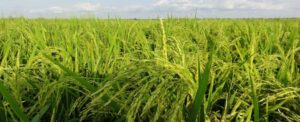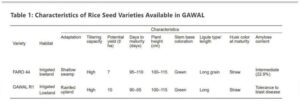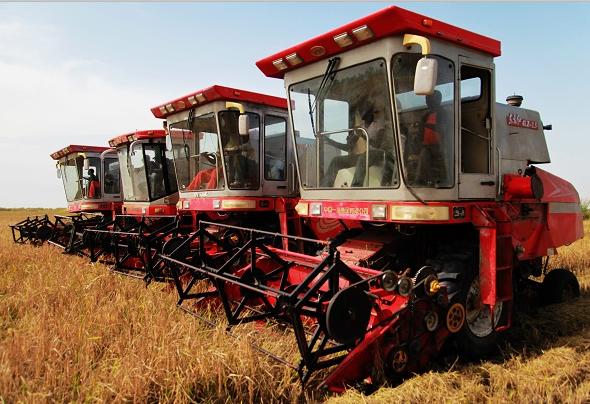The Greater Abuja Water Supply Project
Water Supply Division of CGC Nigeria Limited, with extensive business advantages in the field of engineering projects, internationally competitive Water project construction capabilities, project subcontracting management capabilities, as well as matching design consulting, operation management and market development capabilities. Since entering the water industry in 2001, it has built more than 100 water plants in 36 states of Nigeria, serving the daily life, production and water supply of 70 million people, making important contributions to the improvement of people’s livelihood and economic and social development in Nigeria.
The Greater Abuja Water Supply Project, flagged off in May, 2021, constructed by Water Supply Division of CGC Nigeria Limited, is a significant infrastructure development in Nigeria’s capital, which is managed by the Federal Capital Development Authority (FCDA) and jointly financed by the Export-Import Bank of China. It aims to construct four pipeline loops, thereby enhancing the city’s water supply capacity by 480,000 m3/d. The project encompasses 415 kilometers of ductile iron water distribution pipelines of varying diameters (DN1500-200). Upon completion, it will alleviate water scarcity in 50 districts, benefiting an estimated 2.5 million residents.

This project is more than just a water supply initiative. It is a comprehensive plan to enhance the quality of life in the Federal Capital Territory (FCT) by providing safe, reliable, and ample water to its inhabitants. The project’s social benefits are manifold:
Improving Living Standards: By laying and commissioning water supply pipelines, the project connects the final “mile” of the water supply system. This expansion increases the city’s water supply capacity from 240,000m3/d to 720,000m3/d. It effectively addresses the long-standing water shortage in the capital area and enhances residents’ quality and health of life.
Creating Employment Opportunities: The project directly employs over a thousand indigenous workers during construction, indirectly creating more job opportunities. It stimulates local employment and income growth while nurturing a group of Nigerian local talents and enhancing local personnel skills and quality.

Promoting Sustainable Development: The project allows the existing water plant to operate at its maximum capacity, reducing resource waste. It expands the number and scope of water users, improves the expenditure of the water supply system, forms a virtuous cycle, and lays a foundation for the long-term stable development of the water supply service in the capital area.
Boosting International Competitiveness: The project strengthens the capital area’s water supply system, providing a crucial foundation for its economic, social, and cultural development. It also bolsters Nigeria’s international image and soft power.
The Agricultural Projects of Green Agriculture West Africa Ltd. (GAWAL)
In 2006, CGCOC Group Co., Ltd. embarked on agriculture investment by establishing Green Agriculture West Africa Ltd. (GAWAL) in Nigeria. Since its inception, GAWAL has positioned itself to become a partner for China-Africa agricultural development and a bridge for China-Africa agricultural cooperation. In the past years, it has been recognized in Nigeria not only as a renowned large-scale seed company, but also a comprehensive agricultural company with such businesses as agricultural machinery and equipment, construction and operation of agriculture industrial park, agro-processing, agricultural technical training, agro-product trading and agricultural consultancy etc.
1. Seed Business
In 2010, GAWAL obtained the seed license from the Nigerian National Agricultural Seeds Council (NASC). In 2011, GAWAL started to produce and supply rice seeds, developing diversified seed business based on the local planting structure. Since then, apart from running a 2025-ha mechanized demonstration farm in Kebbi State, the company has set up seven seed production cooperatives with more than 5,000 small-holder farmers in Nigeria; through training and disseminating rice and maize seed production techniques to local farmers, it has developed these farmers as its out-growers, helping them get rid of poverty and increase their income. Currently our company has an annual seed production capacity of over 10,000 MT. From 2011 to date, GAWAL has supplied over 20,000 MT of quality seeds including certified rice seeds, certified maize seeds and foundation rice seeds to Nigeria farmers in over 30 states through such government programmes as Growth Enhancement Support (GES) scheme, Anchor Borrowers’ Programme (ABP) and NIRSAL-sponsored ABP as well as the state governments’ direct seed procurement projects.

After many years’ research and development in seeds, in 2017 we successfully registered a high-yield rice variety – GAWAL R1 in Nigeria, which has an average yield of 30% or so higher than the most popular local rice variety. Due to the good quality and high yield, our seeds have been widely recognized by Nigerian governments and farmers.
2. Construction and Operation of Agriculture Industrial Park
In 2013, GAWAL started to establish the CGCOC Agriculture High-tech Abuja Industrial Park in Abuja by investing on our own. Its main functions include seed and seedling R&D, crop cultivation demonstration, horticulture protected agriculture, agro-input & agricultural equipment sales services, seed processing, agricultural product circulation & processing, micro grid power supply system, agricultural technical training, agriculture-related consultancy and services. The park is also the project site of China-Aid Nigerian Agriculture Technology Demonstration Center. Completed in December 2022, the Center has been transferred to GAWAL for the operation and management to ensure its success. The Center mainly includes Agricultural Technology Training Center, Agricultural Technology Research and Service Centre, Agro-Input and Machinery Exhibition Center, Small Scale Agro-Processing Technology Exhibition Center, Power Centre, Photovoltaic Pump Water-saving Irrigation System.
3. Agricultural Technical Training
In collaboration with WAAPP (West Africa Agricultural Productivity Programme), the company successfully implemented the projects of fish cage culture in 2 states and biogas digester construction in 12 states in Nigeria from 2014 to 2015, in which over 300 farmers and technicians were trained through the indoor training and on-site demonstration.
In order to enhance the agricultural exchange and cooperation between China and Nigeria, since 2016 our company has undertaken the agricultural technical training programmes sponsored by Chinese Government and trained over 400 governmental officials from across Nigeria. The agricultural experts of the Company not only taught and shared the knowledge of modern agricultural technology in such areas as seed production, rice and vegetable cultivation, seed breeding technology, soil and fertilizer sciences, agricultural machinery, pest control, etc.
The Abuja-Kaduna Railway
The Abuja-Kaduna Railway, executed by CCECC Nigeria Limited, stands as Nigeria’s first modern railway, marking the continent’s inaugural instance of “Made in China” and “Chinese standards” in modern rail infrastructure. Spanning a total length of 186.5 kilometers, the Abuja-Kaduna Railway adheres to Chinese railway technology standards, with a designed maximum speed of 150 km/h.
This railway project has added a vital transport artery from Nigeria’s capital, Abuja, to the significant industrial city of Kaduna in the north. It has not only improved the investment climate but also facilitated trade, the movement of people and goods between these two major cities, propelling economic development along the route and within the urban areas. Particularly noteworthy is its role in stimulating commercial development around passenger stations.
The implementation and operation of the Abuja-Kaduna Railway have had a profound impact on Nigeria’s economy. Over seven years of operation, it has safely transported nearly 6.57 million passengers, providing a safe, comfortable, efficient, and punctual mode of travel for residents and visitors alike. It has significantly integrated Kaduna into the development sphere of the capital region, driving economic growth along the railway corridor, generating substantial direct and indirect employment opportunities, and laying a solid foundation for the sustained adoption of Chinese standards. CCECC has not only built infrastructure but also transferred expertise, nurturing a considerable pool of railway professionals, thus ensuring Nigeria’s railway modernization and sustainable development have ample talent resources.





